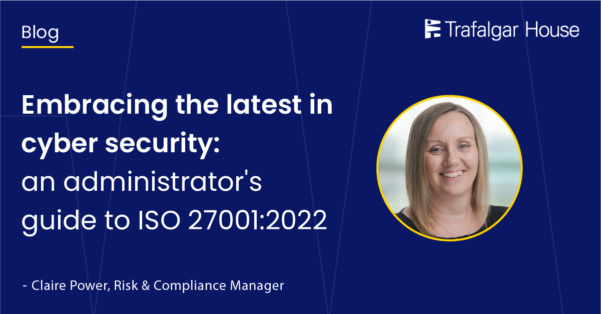Practical and technical strategies for handling pensions administration errors
Pensions administration is one of the most complex areas of the pensions industry. Every day, thousands of transactions, calculations, and decisions rely on precise data and a deep understanding of constantly evolving rules - covering underpins, GMPs, scheme-specific variances, and actuarial factors. With such an intricate and complex task, however, it is inevitable that errors can arise. When they do, the approach to handling them can make all the difference in minimising impact and maintaining member trust.


Practical and technical strategies for handling pensions administration errors
Pensions administration is one of the most complex areas of the pensions industry. Every day, thousands of transactions, calculations, and decisions rely on precise data and a deep understanding of constantly evolving rules – covering underpins, GMPs, scheme-specific variances, and actuarial factors.
With such an intricate and complex task, however, it is inevitable that errors can arise. When they do, the approach to handling them can make all the difference in minimising impact and maintaining member trust.
Here are some practical and technical strategies to navigate errors effectively:
1. Take a breath before acting
The first reaction to an error may be to dive in and fix it immediately. While urgent action may be needed in cases such as investment risk exposure, most errors require a measured and considered response. Understanding the full scope of the issue – both the cause and the potential impact – is critical. Rushing to correct errors without a comprehensive understanding can lead to further complications down the line.
2. Analyse the issue: micro vs. macro
Distinguish whether the error is an isolated incident or a symptom of a more widespread problem. A single miscalculation may require a focused fix, but systemic issues demand a root-cause analysis and possibly a broader review of processes. Investigating at both levels ensures the immediate problem is addressed while preventing recurrence.
3. Develop member-focused solutions
Errors often directly affect members, so any remediation strategy must prioritise their interests and minimise disruption. For example:
- Overpayments: Consider capping future pension increases to gradually recover funds or offering extended repayment windows to reduce financial strain on members.
- Underpayments: Address shortfalls promptly and communicate timelines for rectification clearly.
Member-centric strategies demonstrate empathy and fairness, helping to preserve trust even in challenging circumstances.
4. Don’t overlook legislative and regulatory considerations
Pension errors frequently intersect with complex legal and tax frameworks. For example, recovering overpayments might involve tax implications, unauthorised payments, or discretionary adjustments. Correcting pensions administration errors requires careful attention to legal, tax, and regulatory obligations. Key considerations include:
- Overpayments and discretion: Trustees may need to decide whether to recover overpayments, apply discretion, or write them off. Any discretionary awards should involve the sponsor, as their agreement may be required.
- Tax implications: Overpayments and underpayments may trigger tax adjustments or liabilities. Ensure compliance with HMRC rules and communicate clearly with members.
- Unauthorised payments: Errors leading to unauthorised payments can incur penalties. For underpayments, adding interest must comply with scheme rules and legal requirements.
- Scheme rules and sponsor alignment: Corrective actions must align with the trust deed and scheme rules. Loop in the sponsor early to secure their input and approval where needed.
- TPR guidance: Ensure actions meet regulatory expectations and consider whether errors need to be reported.
- Pensions Ombudsman guidance and determinations: Reference relevant guidance and past determinations from the Pensions Ombudsman to inform decision-making. If a complaint has escalated, there may also be an Ombudsman determination to adhere to or an ongoing complaint to manage.
- Engaging advisers early – actuaries, lawyers, and tax specialists – will help navigate these complexities while ensuring compliance and fairness.
5. Prioritise clear and transparent communication
Good communication is invaluable in managing errors. Members need clear, concise updates explaining what happened, how it affects them, and what steps are being taken to resolve the issue. Informing members early about potential redress, such as interest payments or compensation, is crucial for maintaining trust.
Whenever possible, provide options rather than directives – such as offering a choice between immediate reimbursement or a phased adjustment. This approach gives members a sense of control and empowerment, helping to defuse frustration and foster a more collaborative resolution process. Transparent communication that outlines these options clearly and empathetically can significantly improve member responses.
6. Collaborate with your administrator
Errors often involve a mix of factors, including system coding, data input, or procedural lapses. Blaming or building barriers with your administrator won’t solve the issue – instead, work collaboratively. An open dialogue helps identify root causes and enables agreement on the best solutions, ensuring the same errors don’t recur. Effective partnerships make resolution faster, smoother, and more thorough.
Errors in pensions administration are inevitable, but how they are handled defines the outcomes for members and schemes alike. By taking a thoughtful, strategic, and member-focused approach, schemes can turn a challenging situation into an opportunity to demonstrate professionalism, transparency, and care. Mistakes are a reality, but with the right steps, they can be remedied in a way that strengthens trust and improves processes for the future.
Karla Bradstock is technical & communications manager at Trafalgar House
This article was first featured in Professional Pensions on 31 January 2025.


